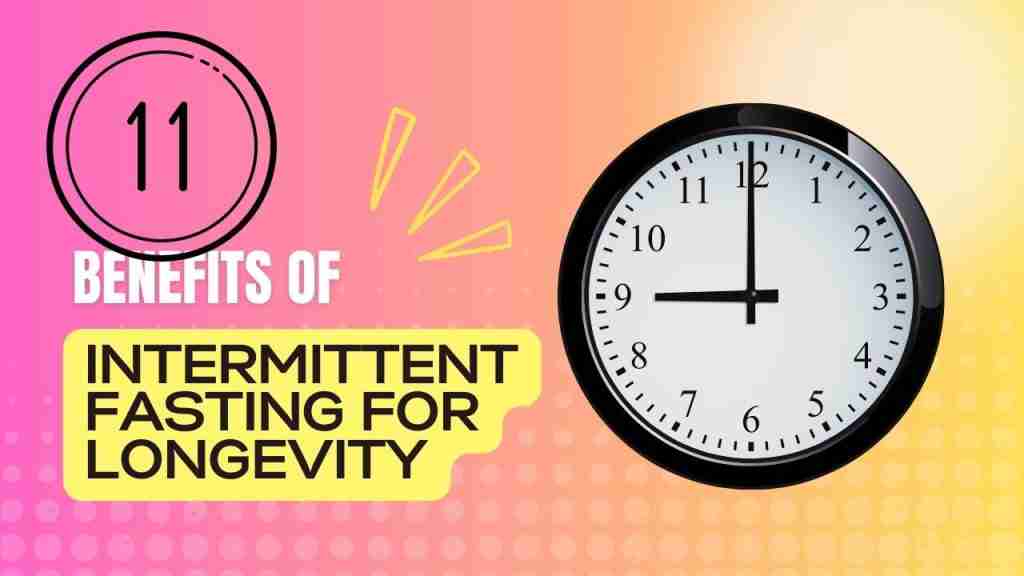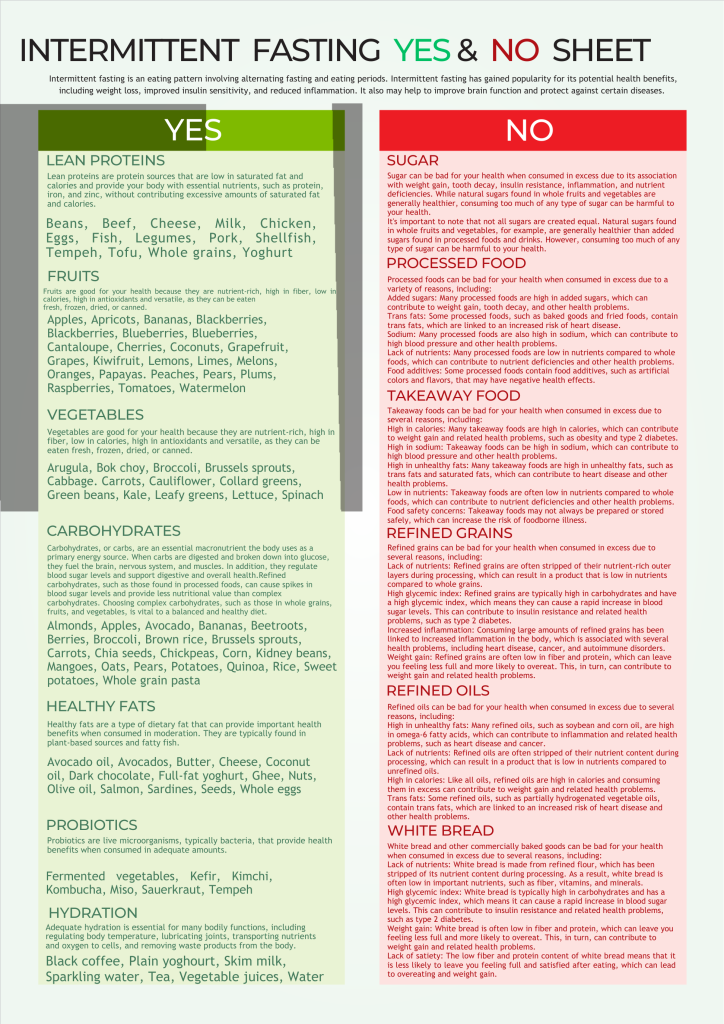Can Intermittent Fasting Help You Live Longer? Yes!
Partnering with Dr. Baxter, a specialist in longevity, has ignited a collaborative effort to unveil an enthralling series on the topic of longevity. This venture has provided me with a profound glimpse into the realm of extending human lifespans, allowing me to uncover captivating insights that I am eager to share with you.
I must admit, my journey has led me down a labyrinth of intriguing avenues, as Dr. Baxter and I have left no stone unturned in our pursuit of knowledge. Believe me, the research we have encountered throughout this journey has been truly awe-inspiring.
I’m thrilled to present the latest breakthroughs from scientific studies that shed light on how fasting could potentially unlock the secrets to a longer, healthier life. Prepare to be intrigued as we dive into the remarkable intersection of fasting and the quest for a prolonged and vibrant existence.
We’re diving into a topic that’s been buzzing in the wellness world: fasting, the not-so-secret key to both longevity and weight loss. Now, I know what you might be thinking – fasting sounds like a major sacrifice, but trust me, the health benefits are worth it!

Does Intermittent Fasting Help You Live Longer?
Yes! The latest research says, that fasting is related to longevity.
After delving into countless research findings, it’s pretty clear that cutting back on calories with a fasting method can extend life – for both animals and us humans. And not just any calories, but the right ones, so you don’t end up malnourished. But hey, living longer is only half the deal. What if I told you there’s a way to boost your lifespan while staying healthier too? That’s where intermittent fasting comes in – a smart approach that offers the perks of calorie reduction minus the full-on struggle.
A recent research conducted by the Department of Nutrition and Integrative Physiology at the University of Utah suggests that intermittent fasting might have the potential to extend your lifespan. In this study, conducted by Intermountain Healthcare in Utah, they looked into whether intermittent fasting had any effect on people’s lifespan. What they found was pretty intriguing.
They asked 2,001 patients who had undergone cardiac catheterization if they practiced intermittent fasting regularly. Fast forward 4.5 years, and those who did practice intermittent fasting showed signs of living longer. They had a lower rate of heart issues and diabetes. Interestingly, they were also less likely to be diagnosed with heart failure.
On average, the people who participated in the study had been doing intermittent fasting for about 42 years, which is like almost two-thirds of their whole life. What’s exciting is that the researchers think fasting like this conditions the body, so even on days you don’t fast, there are still benefits that kick in after about 8 to 10 hours, instead of the usual 12 to 14 hours.
How Does Fasting Work?
Imagine a world where you not only shed those extra pounds but also gain protection against chronic diseases like cardiovascular issues and diabetes. Sounds like a dream, right? Well, that’s the power of fasting–it’s not just about saying no to food; it’s about saying YES to a healthier, longer life.
Here’s the deal: Fasting has been linked to improved insulin sensitivity, reduced blood pressure, and lowered risk of heart disease. But how does it work? Let’s break it down. When you give your body periods of fasting, it gets a break from constant food intake. This break helps lower oxidative stress, improve insulin resistance, and reduce inflammation – all of which are common risk factors for age-related diseases.
But don’t just take my word for it. A recent study by the renowned Dr. Valter Longo, a pioneer in the field of fasting research, delves into the positive effects of fasting on overall health and longevity. Time-restricted feeding, where you eat within a specific window each day, aligns with our circadian rhythms and has been shown to promote metabolic health and weight loss.
Evidence Proves That Even Fruit Flies Even Live Longer When They Fast
Human studies, animal models, and even fruit flies have shown that fasting can enhance cellular repair and extend life span. Yep, you heard that right–from tiny fruit flies to us humans, fasting’s potential benefits are astounding. Whether you’re looking to prevent chronic diseases, boost cognitive function, or simply maintain a healthy weight, fasting seems to work wonders.
But what about different types of fasting? Alternate-day fasting, the 5:2 method, and even the fasting-mimicking diet have all been making waves in recent years. Studies have revealed that these varied fasting regimens not only contribute to weight loss but also protect against cancer, improve metabolic syndrome, and even enhance brain function.
Researchers from institutions like the University of Southern California and the Salk Institute have been delving into the molecular mechanisms behind fasting’s magic. Whether it’s shorter fasts, periodic fasting, or longer fasting periods, the evidence points toward enhanced cellular health and a reduction in age-related illnesses.
Longevity And Fasting
Now, let’s talk about longevity. Fasting may help extend life expectancy by promoting healthy cells, reducing the impact of free radicals, and supporting gene expression that combats disease. A recent study involving rhesus monkeys on a calorie-restricted diet showed potential for a longer life – hinting at the possibility that fasting might hold the key to our own healthy longevity.
But wait, there’s more. Fasting doesn’t just affect your waistline; it affects your brain too! Studies suggest that fasting can protect against cognitive decline, improve brain function, and even aid in cancer treatment.
So, what’s the verdict? Intermittent fasting, when done right and tailored to your needs, might just be the secret sauce to a healthier body and mind. It’s all about finding an eating schedule that suits you – whether it’s an eight-hour window, a few days of the week, or a fasting-mimicking diet.
But remember, while fasting offers a range of health benefits, it’s crucial to approach it with mindfulness. Consult a healthcare professional before making any significant changes to your diet, especially if you have underlying medical conditions.

12 Proven Health Benefits of Intermittent Fasting For Longevity
- Weight Loss:
Intermittent fasting may help promote weight loss by restricting the eating window, leading to a reduction in overall calorie intake. It can also boost metabolism and promote fat burning.
Weight loss essentially boils down to burning more calories than you consume. Fasting naturally creates a caloric deficit, as you’re limiting the time window in which you eat, which often leads to consuming fewer calories overall.
2. Improved Insulin Resistance:
Improve insulin sensitivity, which is essential for maintaining stable blood sugar levels and reducing the risk of type 2 diabetes.
Fasting can help with insulin reduction by promoting better insulin sensitivity and regulating blood sugar levels. Here’s how it works:
Insulin resistance is when your cells become less responsive to the effects of insulin, resulting in higher levels of insulin in your blood. This can lead to various health issues, including type 2 diabetes. Fasting has been shown to improve insulin sensitivity, meaning your cells become more responsive to insulin’s actions. This helps glucose (sugar) from your bloodstream enter your cells more effectively, reducing the need for high insulin levels.
When you’re fasting, especially during longer periods, your body doesn’t need to produce as much insulin since you’re not consuming carbohydrates that require insulin for processing. This reduction in insulin production gives your pancreas a break and can lead to improved insulin function over time.
Fasting helps regulate blood sugar levels by preventing spikes and crashes. Without constant intake of carbohydrates, your blood sugar remains stable, reducing the need for frequent insulin releases.
3. Enhanced Cellular Repair:
During fasting periods, the body initiates cellular repair processes, including autophagy, where cells remove damaged components. This can aid in detoxification and overall cell health.
Fasting triggers a process called autophagy, where cells remove damaged components and recycle them. This helps keep cells healthier and may contribute to overall longevity by reducing the burden of dysfunctional cells.
4. Heart Health:
Some studies suggest that intermittent fasting may lead to improvements in heart health by reducing risk factors, such as cholesterol levels, blood pressure, and inflammation.
Fasting, particularly intermittent fasting, has been associated with improvements in various heart health markers. It can lead to reductions in blood pressure, total cholesterol levels, triglycerides, and LDL (bad) cholesterol levels, all of which are risk factors for cardiovascular disease.
Fasting can contribute to weight loss, which is crucial for heart health. Excess body weight is linked to a higher risk of heart disease, and fasting can help with weight management by creating a calorie deficit.
In addition,fasting could improve endothelial function, which is crucial for maintaining healthy blood vessels. Enhanced endothelial function can lead to better blood flow and a reduced risk of cardiovascular problems.
5. Brain Health:
Okay, the connection between fasting and your body health looks promising so far…but what about your brain health? Some animal studies have shown intermittent fasting to be protective to the brain by improving its function and structure, like in this 2018 study in Experimental Biology and Medicine, which suggests fasting may protect against Alzheimer’s disease by reducing the incidence of memory loss. Obviously, more research is needed to see if this is also true in humans (because you’re not a mouse, right?!)—but at some point in the future, we may see those results apply more broadly. TBD.
6. Simplified Meal Planning:
Intermittent fasting can simplify meal planning and food choices since it often involves fewer meals per day.

7. Supports Digestive Health:
Giving the digestive system regular breaks through fasting can aid in digestion and reduce issues like acid reflux and bloating.
Fasting gives your digestive organs, like the stomach and intestines, a chance to rest. Without constant food intake, these organs can recover and rejuvenate, potentially improving their efficiency.
Digestion requires energy, and giving your body a break from processing food can redirect energy toward other essential functions, such as cellular repair and detoxification.
Fasting may positively influence the gut microbiome – the community of bacteria in your digestive tract. A healthier microbiome is linked to better digestion, nutrient absorption, and overall gut health.
Fasting may also help balance stomach acid production. Excessive stomach acid can lead to issues like acid reflux, and fasting might provide relief by allowing your stomach to maintain a healthy acid level.
8. Positive Impact on Hormones:
Intermittent fasting can influence various hormones, including human growth hormone (HGH) and norepinephrine, which play roles in metabolism and fat burning. Fasting can lead to changes in hormone levels that affect aging, including increased production of human growth hormone, which plays a role in cellular repair and growth.
9. Psychological Benefits:
Some individuals report improved mental clarity, focus, and a sense of discipline and control when practicing intermittent fasting. Fasting can encourage a heightened awareness of eating patterns and the relationship between food and hunger. This mindfulness can extend to other aspects of life, promoting mindful decision-making and reducing impulsive behaviors.

10. Helps With Chronic Inflammation:
Fasting has been shown to have anti-inflammatory effects on the body. Fasting helps with inflammation by reducing pro-inflammatory cytokines, promoting autophagy, lowering oxidative stress, improving insulin sensitivity, modulating gut microbiota.
In a world where the pursuit of healthy living is ever-evolving, fasting emerges as a powerful tool that not only aids weight loss but also unlocks the door to a longer, more vibrant life. So, as you consider your next meal, remember that the occasional pause might just be the leap you need toward a healthier, happier you.
11. Telomere Maintenance:
Telomeres, protective caps at the end of chromosomes, naturally shorten as we age. Shorter telomeres are linked to cellular aging. Some research suggests that fasting might help preserve telomere length.
Stay curious, stay healthy, and here’s to embracing the beauty of a balanced, fasting-fueled lifestyle! 🌱🕒
12. Reduce The Chance Of Getting Cancer
There was a study done by Lee et al (2012) that examined the effects of fasting on different tumour cells. It was found that fasting may be as effective or even replace some of the chemotherapy drugs. Other studies show similar results. Therefore, although more studies are required on humans since most have been conducted in a tube or on rats, the results are promising.
Most Frequently Asked Questions About Fasting
Q: What are the different methods of intermittent fasting?
A: There are several methods of intermittent fasting, such as the 16/8 method (fasting for 16 hours and eating during an 8-hour window), the 5:2 method (eating normally for 5 days and restricting calories for 2 non-consecutive days), and the Eat-Stop-Eat method (24-hour fasting once or twice a week).
Q: Can I drink liquids during the fasting period?
A: Yes, most intermittent fasting methods allow for the consumption of water, tea, coffee (without added sugar), and other non-caloric beverages during the fasting period.
Q: Will I lose muscle mass while practicing intermittent fasting?
A: If done correctly, intermittent fasting should not lead to significant muscle loss. Consuming adequate protein during your eating windows and engaging in regular physical activity can help preserve muscle mass.
Q: Is intermittent fasting suitable for everyone?
A: Intermittent fasting might not be suitable for pregnant or breastfeeding women, individuals with a history of eating disorders, or those with certain medical conditions. It’s advisable to consult a healthcare professional before starting any fasting regimen.
Q: How quickly will I see results with intermittent fasting?
A: Results vary from person to person. Some people might experience noticeable changes in a few weeks, while others might take longer. Consistency and adhering to a healthy eating pattern during eating windows are key.
Q: Can intermittent fasting help with weight loss?
A: Yes, many people use intermittent fasting as a tool for weight loss. By restricting the eating window, it can lead to a reduction in overall calorie intake, which may contribute to weight loss over time.
Q: Are there any potential side effects of intermittent fasting?
A: Some individuals may experience side effects like hunger, irritability, or difficulty concentrating during the initial stages of adapting to intermittent fasting. Staying hydrated and ensuring balanced nutrition during eating windows can help alleviate these issues.
Q: Can I exercise while fasting?
A: Yes, light to moderate exercise is generally safe during fasting periods. However, intense workouts might be more challenging, so it’s important to listen to your body and adjust your exercise routine accordingly.







